Business
What’s involved in forklift truck training?
Published
2 years agoon
By
admin

While you don’t need a driving licence to operate a forklift and there’s no such thing as a ‘forklift licence’, certain qualifications are still required by law to operate this type of machinery.
To comply with safe working practices, an aspiring forklift operator will need to complete a forklift truck training course.
Regardless of whether you want to obtain a new skill to broaden your future prospects or ensure that all your employees are trained to operate machinery according to the latest legal requirements, we can help.
Below, we explore why forklift training is necessary as well as the objectives of this training and what is included in the course.
Why is forklift truck training necessary?
Not only is forklift truck training a helpful course to take for those aspiring or already working in a relevant industry, but it is also a legal requirement that all forklift operators have the appropriate safety tuition.
As set out by the Health & Safety and Work Act 1974, employers have a legal responsibility to provide a safe work environment. It states:
“The provision of such information, instruction, training and supervision as is necessary to ensure, as far as is reasonably practicable, the health and safety at work of all his employees.”
This training therefore helps to ensure the safety of the operator, as well as their colleagues, and any other individuals working on site – reducing the frequency of accidents.
Who can take forklift training?
According to guidance in the relevant Health and Safety Executive (HSE) approved code of practice (ACOP), anyone that is 16 (the minimum school-leaving age) with good verbal and written English skills can take an industrial forklift truck training course.
Those skills are essential for not only the completion of the course, but also the exam that comes at the end.
Participants on the industrial forklift truck training course accredited by the Construction Plant Competence Scheme (CPCS) must also have completed and passed the relevant Construction Industry Training Board (CITB) Health, safety and environment (HS&E) test in the past two years.
Who needs to take forklift truck training?
Any employee or individual planning to operate a forklift truck will be legally required to undertake appropriate training.
This includes managers and supervisors as well as employees, so it’s best to consider training every member of staff if you run a construction or warehousing business – no matter how long they plan on operating the machinery for.
Similarly, individuals looking for work in these sectors can benefit from taking this course.
What training is required to operate a forklift truck?
According to government guidance, regardless of whether employers use in-house trainers or use external training providers, forklift operators must be trained to the standards outlined in the L117 ACOP (Approved Code of Practice relating to the main legal requirements of lift trucks).
Forklift training can be delivered by members of a voluntary accredited body, awarding organisations (subject to quality assured regimes) and independent in-house bodies.
While it is not a legal requirement for forklift training organisations to be part of a voluntary accredited body, it can help to set and maintain standards, ensuring employers and individuals choose training organisations that offer a good standard of training.
At SB Skills Solutions, most of our industrial forklift truck training is accredited by the Independent Training Standards Scheme and Register (ITSSAR) and National Plant Operators Registration Scheme (NPORS).
We also conduct in-house training that can be tailored to the needs of your organisation – for example, including additional elements of on-site safety tuition that your workers might benefit from.
What is the objective of forklift truck training?
The ultimate objective of forklift truck training is to ensure those operating forklift machinery are able to do so in a safe and competent manner.
By achieving this, employers have peace of mind the risk of injury is reduced for operators and others on site.
Participants will also work towards receiving appropriate certification from the awarding body.
However, in general terms, at the end of a forklift operator training course, delegates will be able to:
- Operate the truck model used during teaching safely and correctly in accordance with the manufacturer’s operator procedures
- Demonstrate their understanding by stating clearly the causes of instability for trucks and loads
- Carry out correctly routine pre-use inspection of the lift truck in accordance with the manufacturer’s manual
Those taking a CPCS accredited forklift truck training course, and have passed the HS&E exam mentioned above, can apply for a trained operator card – also known as a red card – upon successful completion of the relevant theory and practical tests.
Click here to find out more about CPCS cards and training
What is included in forklift truck training?
The ACOP text gives advice on the basic training of forklift truck operators.
To comply with their legal obligations, employers must make sure that all operators – both new and existing – are adequately trained and, when necessary, provide additional refresher training.
If you are unsure, ask us about which type of training is suitable for your workers.
However, the categories are usually novice, experienced (those without a licence who require a retest to update their skills) or refreshers (people who have previously had licences that are now out of date).
Basic training, which focuses primarily on how to operate a forklift truck safely and efficiently and is done off the job, may be conducted at a suitable training centre or venue, or at an employer’s premises.
If done on location, the instructor and trainees, together with the lift truck and any loads, are kept away from normal commercial operations.
Basic training can be combined with specific job training, which teaches the principles and controls of the type of forklift truck that operators will use in their workplace.
SB Skills Solutions is happy to tailor training to an employer’s needs. The course content depends upon the lift-truck operations the trainee is expected to carry out.
However, basic practical training will include:
- Introduction to the lift truck to be used, including its controls and instruments
- Correct procedures for mounting and dismounting
- Start, moving, stopping and steering the lift truck
- Operation of the hydraulic controls
- Weight assessment and lift truck stability
- Handling unladen pallets and laden loads
- Stacking and de-stacking procedures
- Driving on and off ramps and inclines
- Road vehicle loading and unloading procedures
- Lift truck pre-use checks
- Refueling procedures
A theory element introduces learners to the operator’s safety code.
A practical test, which assesses basic operating skills as well as the ability of learners to carry out a pre-use check, completes the course.
How long does it take to do forklift training?
Courses should be long enough to cover the requirements laid out in the ACOP.
The time required to complete forklift truck training is determined by several factors; the type of machinery, the experience of the participant(s), and how many learners there are.
All tuition delivered by SB Skills Solutions uses the maximum ratio of three trainees to one instructor for practical sessions.
As a guide, training for three novices would take five days (or 37.5 hours) to complete.
Operators with some experience of forklift trucks or relevant experience of similar vehicles may need less extensive training than those with none.
That said, an operator with basic training on one type of lift truck will need additional training to safely operate others. However, the hours will be reduced because of learner already understands stability and safety.
Ask us about conversion training.
How much does forklift truck training cost?
In the same way the length of an industrial forklift training course depends on the experience of the participant, so too does the cost.
At SB Skills Solutions, our in-house accredited five-day course for novices costs £750.
However, shorter refresher training courses start from £180.
Forklift truck training at SB Skills Solutions
Interested in one of our industrial forklift truck training courses?
At SB Skills Solutions, we deliver first-class training courses to employers wanting to equip their workers with new or improved skills.
We also help young adults to plan for their future career by supporting them in their search for new skills.
As a trusted training provider, we deliver courses accredited by ITSSAR, NPORS and CPCS in addition to our own tailored in-house offer.
Supported by appropriately experienced and qualified trainers, testers and customer sales assistants, we provide an unmatched level of expertise, knowledge and professionalism across a wide range of subjects.
If you require further help or advice about training, certification or licences for operating a forklift truck, don’t hesitate to ask.
You can get in touch with the team at SB Skills Solutions by either giving us a call on 01695 558 420 or sending an email to info@sbskills.co.uk
Alternatively, you can also use our online contact page to submit your enquiry.
Our handy online contact forms can be used to book one of our training courses or to find out more about the services we have on offer.
You may like
-
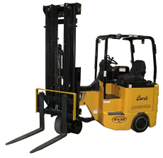

What does Material Handling Equipment (MHE) training involve?
-


How often do you need forklift refresher training?
-


How to obtain a forklift licence
-


Popular telehandler types and their benefits
-
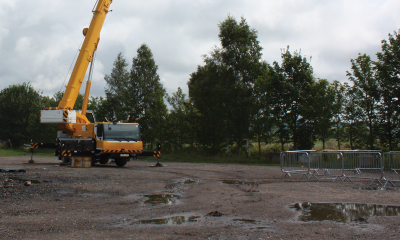

Are you considering a career in construction working as a slinger signaller?
-


How to operate a JCB telescopic handler
Business
Qualifications to become a site manager in construction
Published
6 months agoon
November 10, 2023By
admin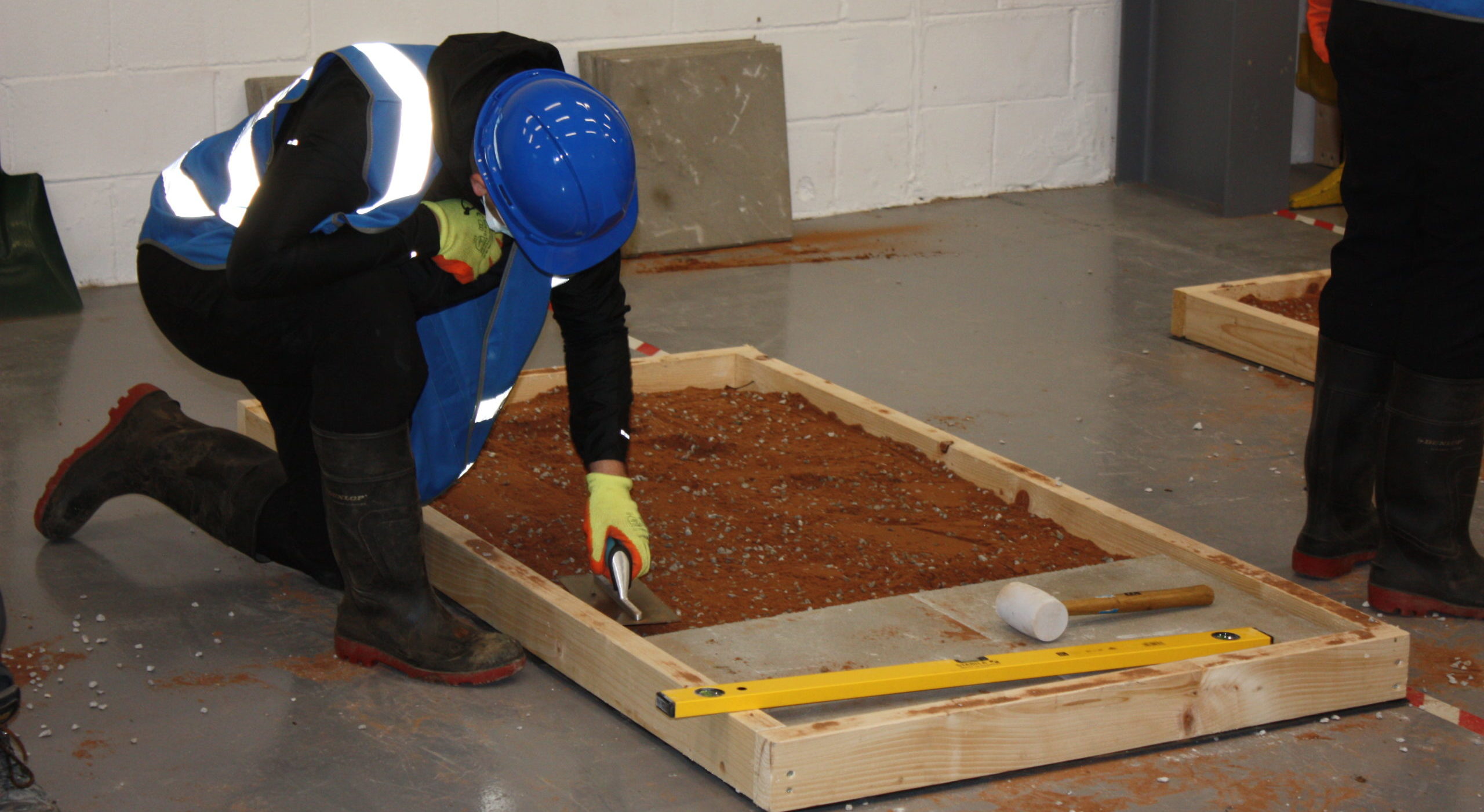

Qualifications to become a site manager in construction.
If you’ve been wondering ‘what qualifications do I need to be a site manager’ or ‘do I need a site manager Construction Skills Certification Scheme (CSCS) card’ to manage a construction site, then you’ve come to the right place.
Highly experienced and knowledgeable when it comes to the training required to work in the construction industry, the SB Skills Solutions team knows exactly what it takes to become a construction site manager.
To help you understand which qualifications are worth exploring and obtaining for this role, we explain the different site manager training routes and which one you should consider taking based on your prior workplace experience and skills.
What is the difference between a site manager and site supervisor?
While a site manager and a site supervisor may seem like interchangeable terms and roles, they actually have differing responsibilities. While a site supervisor position is generally an entry-level role, a site manager position requires either more relevant experience in the industry or a higher qualification.
Site managers tend to have the additional responsibility of managing several construction sites at once, whereas site supervisors typically concentrate on just one location.
What qualifications do you need to become a site manager?
Unlike some of the other positions on a construction site, site managers have a large amount of responsibility. As a result, they need to have the right site manager qualifications, skills, and experience to ensure the site is operating both efficiently and safely.
However, there’s not just one qualification every construction site manager possesses.
Site manager qualifications include:
- SMSTS (Site Management Safety Training Scheme)
- National Vocational Qualification (NVQ) Level 6 in Construction Site Management
- Level 6 Civil Engineering Site Management Degree
- Higher National Certificate (HNC) in Construction or related disciplines
- Higher National Diploma (HND) in Construction Management or related disciplines
- Foundation Degree in Construction Management
- Degree in Construction Management
- Apprenticeship in Construction Site Manager
- Higher Apprenticeship in Construction Site Manager
You may also need:
- High-Risk First Aid
- Confined Spaces (If it applies to the site)
- Qualifications in the work being carried out
Put simply, this means you can take a variety of routes and qualifications to become a construction site manager. Whether you want to become an apprentice, take an undergraduate degree, or apply for a work-based NVQ, there’s no end of options to explore.
It’s important to bear in mind, however, that each route will have different applicant requirements.
For example, to be considered for an apprenticeship in construction site management, you will need to have a grade C or 4 in GCSE English Language and Mathematics or equivalent level 2 qualifications.
What site manager NVQs do you need?
Equivalent to a bachelor’s degree, an NVQ Level 6 in Construction Site Management is a sought-after
qualification that can take anywhere from just four weeks up to 12 months to complete.
The course can be fast tracked, if desired, but the duration of the course depends mainly on the motivation and availability of the applicant. The ultimate NVQ course is designed to assess the competency of the applicant and is one of the highest qualifications you can achieve in the construction industry.
After obtaining this qualification, you will be one step closer to being able to apply for your site manager CSCS card (commonly known as a black card) which can help you to secure employment as a construction site manager.
What HS&E Test certificate do you need?
Before you can apply for a CSCS card, however, you will first need to pass the required level of CITB
(Construction Industry Training Board) Health, safety and environment (HS&E) test within the past two years.
To apply for a manager CSCS card, you will need to apply for and pass the CITB Managers and Professionals HS&E test or an approved alternative. You can use CSCS’s card finder to discover which CSCS card you are eligible to apply for based on either your occupation or qualification.
Alternatively, if you know which HS&E test certificate you require to obtain your desired position in the construction industry, then you can book your HS&E test here.
How do you get a Black CSCS Card?
Keen to obtain your black card from CSCS? If so, you will need both the relevant NVQ qualification as well as a completed CITB Managers and Professionals HS&E test. If you’ve taken an SMSTS course, then this can be put towards achieving your NVQ Level 6 in Construction Site Management.
If you’re not sure how your current qualifications can help you to become a construction site manager or want more information regarding the site manager CSCS card, then contact the experts at SB Skills Solutions.
We can provide you with professional guidance and advice, and direct you towards relevant site manager training courses.
Find out more about becoming a construction site manager
If you’d like to learn more about becoming a construction site manager, obtaining your black CSCS managers card, or you require more information regarding the site manager qualifications you can obtain at SB Skills Solutions, please feel free to get in touch with our team today.
Our Construction Site Management NVQ Level 6 qualification is ideal for individuals that are already working in the construction industry and are eager to increase their earning potential.
This course is designed to help the participants build their construction competence, skills, experience, and knowledge.
Every NVQ assessor at SB Skills Solutions has at least ten years of relevant experience and possesses either the Level 6 Construction Site manager NVQ, PTLLS (Preparing to Teach in the Lifelong Learning Sector), or Assessor Award, so you can rest assured that you’re in highly knowledgeable hands.
The site management course paired with our qualified assessors can ensure you have everything you need to begin a career as a construction site manager. To find out more about this Level 6 qualification, please don’t hesitate to contact our friendly team today.
To speak directly to a member of our team, simply give us a call on 01695 558420. Alternatively, you can also get in touch by sending your enquiry via email to info@sbskills.co.uk.


Keen to explore all your career options – including a position as a plant operator?
Luckily, the team of expert tutors at SB Skills Solutions have helped countless companies upskill their employees as well as numerous individuals obtain essential qualifications to achieve their dream job in the construction industry and further afield.
From the average plant operator salary in the UK to which qualifications, skills, and training courses can help you to become a plant operator, we explain everything you want to know about this profession.
What do construction plant operator jobs involve?
As a plant operator, you’ll be required to carry out a wide range of tasks. Primarily, this will include the operation, monitoring, and maintenance of heavy machinery like diggers, bulldozers, cranes, and excavators.
With help from these machines, you may be asked to move, excavate, lift, or crush building materials or organic matter.
In the event that these machines stop working or develop inefficiencies, a plant operator will be on hand to rectify any issues and support productivity. This role tends to also cover the maintenance of these machines, ensuring they’re in good working order.
A more comprehensive list of plant operator responsibilities can include:
- Supervising and overseeing operations
- Monitoring process parameters
- Performing maintenance tests
- Ensuring safety rules are followed
- Operating heavy machinery and equipment
- Transporting a variety of materials
A construction plant operator may have more specific daily duties such as:
- Operating forklifts, bulldozers, excavators, trucks, and more heavy machinery
- Transporting and storing building materials and earth
- Carrying out safety checks
- Level out working areas
- Communicate using radio signals
What are the working conditions like?
A construction plant operator will often be required to work outdoors in a range of weather conditions. Construction sites aren’t squeaky clean like an office or control room. You may work at heights such as operating a tower crane or a large excavator.
Instead, the working conditions for a construction plant operator tend to be significantly dirtier and nosier than alternative plant operator positions. Due to the nature of the building construction industry, you may also be required to work nights or weekends in order to deliver the necessary progress within the set construction deadline and budget.
How much does a plant operator earn?
According to information published by Totaljobs, a plant operator salary in the UK varies between £27,681 and £37,500, with an average annual salary of £32,500. It’s worth bearing in mind that the exact salary for this position will naturally vary depending on the location of the job and the industry that you work in.
Higher-paying positions are more accessible to individuals that upskill themselves, allowing them to work in a wider range of relevant industries. This is because plant operators tend to specialise in just one type of equipment.
What skills do I need to become a plant operator?
Unsure whether you have the necessary skills to become a plant operator? Below, we list some of the most common skills plant operators possess that can help them to succeed in both this role and their chosen industry. These plant operator skills include:
- An interest in heavy machinery and equipment
- Ability to operate, fix, and maintain machinery
- Understanding of engineering, maths, and computers
- Problem-solving capabilities
- Ability to use relevant computer software
- Strong attention to detail
- Excellent teamwork skills
- Ability to work independently
- Able to work well under pressure
Construction plant operators must also possess certain physical skills like excellent movement and coordination.
What qualifications do construction plant operators need?
In England, if you want to become a construction plant operator, you could obtain either your Level 2 NVQ (National Vocational Qualification – practical, work-based qualifications) in Construction Plant Operations, your Level 2 Construction Plant Operative Apprenticeship qualification, or your Level 3 Diploma in Construction and the Built Environment.
In addition to these qualifications, you may also need to apply for your blue CPCS (Construction Plant Competence Scheme) Competence Card or your CSCS (Construction Skills Certification Scheme) accreditation to work on a construction site as a plant operator.
What courses and training can I take to become a plant operator?
There are many routes you can take to become a plant operator. Some of these avenues involve applying for an apprenticeship, while others require work experience in the relevant industry to get you started.
To help you determine which route might be right for you, we explore each of these avenues in more detail.
College or training provider
As mentioned above, a course from either a college or training provider in Level 2 Certificate in Construction Plant Operations or Level 3 Diploma in Construction and the Built Environment can provide you with the relevant qualifications to become a plant operator.
While these courses will cover most of the required skills to join this profession, on-site experience is also crucial to obtaining a construction plant operator role, so many applicants will seek out a trainee position on a construction site following completion of the course.
For the level 2 course, you’ll need two or more GCSEs at grades 9 to 3 (A* to D), while a level 3 course requires four or five GCSEs at grades 9 to 4 (A* to C). Without GCSEs, you must hold an equivalent qualification.
Trade work
Working your way up is one of the more common ways you can become a plant operator. Often, if you’re enthusiastic enough and willing to work hard to obtain the relevant plant operator skills and qualifications, many employers will consider offering individual work as a general labourer with training opportunities.
They may request certain GCSEs grades (in subjects like English, maths, and technology), but they can provide you with invaluable on-site experience with heavy machinery and equipment.
Once you’ve gained enough experience and knowledge of the construction industry, they may contact a training provider to help you obtain the relevant qualifications to become a plant operator.
Career path and progression
Once you’ve managed to secure a plant operator position, there is still room for career progression. Often, one of the best ways to both increase your earning potential and develop your career in this industry is to specialise in a broader range of machines and equipment. This will allow you to work in different plants and positions.
Contact SB Skills Solutions
If the potential for career progression and the day-to-day duties of a construction plant operator seems like a good fit for your skills and professional aspirations, why not get in touch with the knowledgeable team at SB Skills Solutions to find out more about our plant operator course?
Our qualified team of experienced assessors can help you to obtain your NVQ Level 2 Plant Operations qualification, and by extension, achieve your blue CPCS Competence Card.
Recognised by the Construction Plant Competence Scheme (CPCS) and NPORS this NVQ can increase your earning potential while providing you with sought-after skills, experience, and competence in plant operation.
With the right support, we can ensure you learn the relevant skills and knowledge to become a plant operator. To find out more about the contents of the plant operator course, our prices, or alternative construction training courses, please don’t hesitate to contact our friendly team today.
To speak directly to a member of our team, simply give us a call on 01695 558420. We also welcome enquiries submitted via email to info@sbskills.co.uk. After receiving your plant operator course enquiry, we’ll ensure a prompt response to your query or a schedule a call to learn more about your training requirements.
Business
How to Become a Construction Site Manager
Published
8 months agoon
September 14, 2023By
admin
Construction site managers are responsible for small sections of a construction project all the way through to management of entire development projects.
This role is diverse and not for everyone, but if you feel that you can take on the responsibility of a construction site manager, then look no further.
The team of expert training providers at SB Skills Solutions has created the only guide you’ll need to become a building site manager. Use this guide as your map to your future construction site manager job!
Below, we explore the role, earning potential, and day-to-day duties of a building site manager. We also explain which site management qualifications are necessary to obtain this position and the routes you can take to secure a construction site manager role.
What is a site manager?
A building site manager (also referred to as a construction site manager or site agent) is in charge of overseeing the day-to-day running of a construction site. Their role revolves around supervising the construction project as a whole, so they have the responsibility of ensuring every contractor is working safely and efficiently.
As well as liaising with contractors, they’ll also commonly work alongside architects and surveyors. A construction site manager helps the entire team stay on track, ensuring the building project is finished on time and within budget.
A building site manager will generally work in one of the five project groups; residential, commercial, industrial, environmental, or infrastructure. Your experience and area of interest in construction will often dictate which group you end up working in.
What does a site manager do?
Due to the supervisory nature of this position, the roles of a site manager are wide and varied. Depending on the size of the building project, these duties can range from ensuring the project stays on budget to ordering materials and liaising with clients.
It’s important to also note that a building site manager must be versatile as they will often be required to split their time between working on-site, working in an office, and working in a temporary office built on site. Frequently working in a variety of weathers (hot, cold, and wet!), they must be content wearing protective and high-visibility clothing, too.
While construction site managers tend to work the standard working week, they may be expected to work during weekends or evenings in order to meet deadlines, when necessary. Alternatively, the nature of some construction projects means the building work can only be undertaken at night or during public holidays.
As a building site manager, you may be required to:
- Supervise workers
- Hire subcontractors
- Monitor and report progress to staff
- Liaise with clients
- Purchase materials for the project
- Conduct safety inspections
- Carry out quality inspections
- Motivate the construction team
- Solve problems
- Prepare and create progress reports
- Analyse site reports, designs, and drawings
- Utilise specialist computer programmes
- Work in a variety of environments
- Liaise with the community and handle public demands
- Interpersonal skills
How much does a construction site manager earn?
The part you’ve all been looking for, so we will get it over with now. According to Check a Salary, a site manager in construction can earn anywhere between £37,500 to £74,880 per year!
With an average annual salary of £56,996 in the UK, there’s scope to earn a higher salary as a construction site manager if you move into more specialised roles or start your own construction-related business.
It’s also worth bearing in mind that the exact salary for this position will naturally vary depending on the location, employer, and level of responsibility. You could also improve your earning potential and career options by gaining chartered status to help showcase your competency to prospective clients and future employers.
Construction manager qualifications in the UK
Wondering ‘what qualifications do I need to be a site manager’? As you might imagine, construction site managers need higher level qualifications than most site workers as they are responsible for everything on site.
If you already work within the construction industry, you may be able to become a construction site manager by completing some site manager training courses. Site manager qualifications include:
You may also need:
- High-Risk First Aid
- Confined Spaces (If it applies to the site)
- Qualifications in the work being carried out
SMSTS
The SMSTS is a management course designed to teach managers or potential managers, the legislation involved in the building, construction, and civil engineering industries.
Construction Site Managers will also learn the importance of carrying out risk assessments, putting control measures in place, and adhering to health and safety regulations in order to create a culture of safety awareness.
The SMSTS course is a 5-day classroom-based learning experience that is valid for 5 years. This can be renewed with a short 2-day refresher.
NVQ Level 6 in Construction Site Management
The NVQ Level 6 in Construction Site Management is one of the highest levels available and is equivalent to a bachelor’s degree.
Taking anywhere between 4 weeks to 12 months to complete (depending on the applicant’s availability, motivation, and desire to fast track the course), this course is an in-depth assessment of your competency at construction site management. This is one of the ultimate NVQs in the construction industry with very few above it.
Not only does this NVQ in construction site management prove you are a competent site manager, you are then able to apply for your Black CSCS managers card which can be used to access construction sites and work as a manager.
What is the black CSCS card and why do you need it?
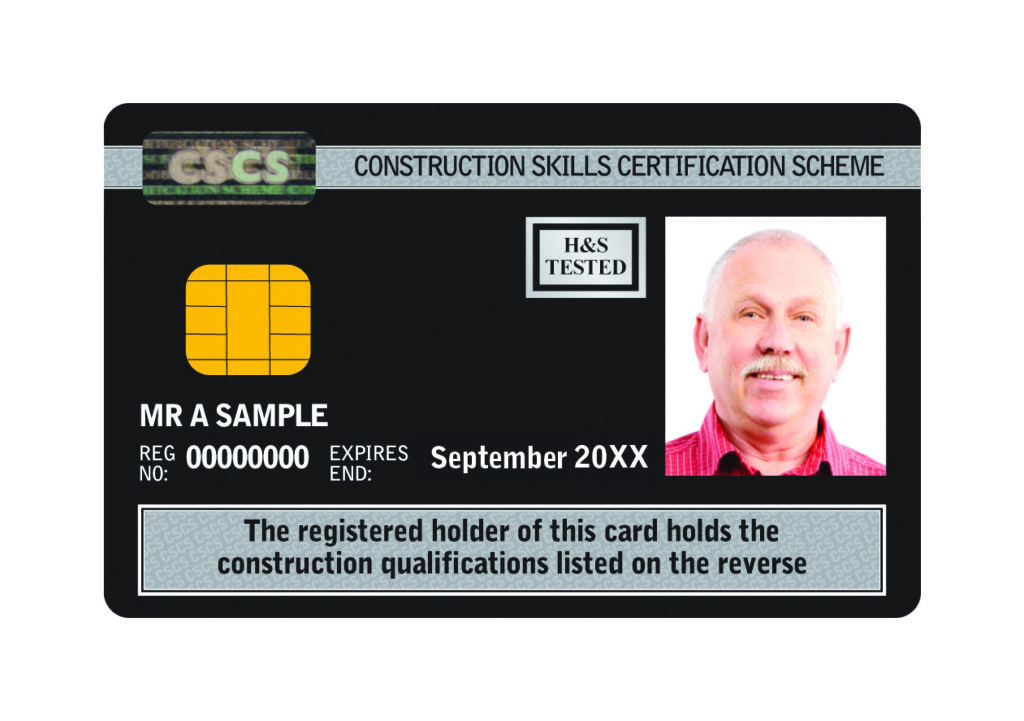
The Black CSCS Card is a construction site manager card that proves your competency in managing sites. This card proves to employers that you are qualified for the job and you can work safely on a construction site.
Employers need to prove that they are compliant with Construction Design and Management regulations (CDM) which aims to ensure everyone has the correct skills and qualifications for the job role they are completing.
Having the Black CSCS Card has also shown to increase your earning potential and job offers. Employers like to see that a potential employee is competent already and this card shows just that. Employers will know that after a short company induction, you’ll be ready to hit the ground running and won’t need your hand, held every step of the way.
How to become a construction manager
Getting a job as a construction site manager may seem daunting, but with the right skills, experience, and qualifications (which we can equip you with), you’ll be there in no time. There are a few routes that you can take to become a construction site manager, the first route is the apprenticeship route.
University
The university route is also an option if you want to become a building site manager as it will teach you everything you need to know about construction site management. Each university course will have specific entry requirements, with the duration of study often being between three and four years.
Depending on your A-level results, level 3 diploma qualifications, or your life experience if you’re applying as a mature student, you will have the choice of taking a foundation degree, a Higher National Diploma (HND), or an undergraduate degree accredited by the Chartered Institute of Building (CIOB).
Suitable subjects of study for one of these construction-related university degrees include building studies, estimating, and surveying, alongside construction, and civil engineering.
The SMSTS management course is also available to those with a bachelor’s degree. It explains the importance of risk assessments, control measures, and health and safety regulations to provide site managers with a comprehensive overview of construction legislation. Valid for five years, this course takes roughly six months to complete.
The only downside to this route is that you won’t be able to apply for the Black CSCS card. However, you can apply for the academically qualified card which is also a very prestigious card.
Work
If you’d rather take a more traditional route, you may decide to find a job in a relevant trade (such as an estimator, building technician, surveyor, or site supervisor). From there, you can take courses that will upskill you and work your way up to management.
This could be a lengthy process, but chances are if you’re reading this, you’re almost there and looking to progress. From this point, you should undertake your SMSTS course and look to achieve your Black CSCS card.
Skills
If you want to increase your chances of obtaining either employment or professional experience within the construction industry, with a view to becoming a building site manager, you may want to consider expanding upon your current skillset.
Some additional skills that could help you to achieve your goal of becoming a construction site manager include:
- Time management
- Leadership qualities
- Understanding of construction
- Excellent verbal communication skills
- Problem-solving abilities
- Business management
- Strong desire to take initiative
- Organisational skills
- Maths knowledge
- Computer literacy and the ability to use relevant software
What are the career prospects of a construction site manager?
In terms of career progression, it’s common for building site managers to become contract managers or project consultants, or to specialise in a certain area of construction such as building inspection or estimation.
Becoming chartered through the CIOB is often the first step into building on your professional prospects as it’ll provide you with more career options.
Construction site manager courses at SB Skills Solutions
If you’d like to explore the more traditional route of finding a job in trade and then taking a construction site manager course, contact SB Skills Solutions today.
With the Construction Site Management NVQ Level 6 qualification under your belt, you can increase your earning potential, secure a sought-after building site manager position, and work on your construction skills, competence, experience, and knowledge.
Guided by the experienced NVQ assessors at SB Skills Solutions (every assessor holds the Level 6 Construction Site manager NVQ, PTLLS (Preparing to Teach in the Lifelong Learning Sector), or Assessor Award with a minimum of ten years of relevant experience), we make obtaining this qualification straightforward.
With the support of our qualified assessors, you can achieve all the necessary qualifications to be a site manager. To learn more about the course, its contents, or our prices, please don’t hesitate to contact us today.
You can also call us on 01695 558420 or send us your enquiry in an email to info@sbskills.co.uk. Once we’ve received your enquiry, you can rest assured that a member of our team will be in touch soon to find out more about your site manager training requirements.
Trending
-
Jobs2 years ago
Project Manager – Oxford
-
Jobs3 years ago
Commissioning Engineer Security Industry
-
Jobs2 years ago
Airport Retail Sales Assistants
-

 Business5 years ago
Business5 years agoHow To Renovate a Victorian House
-
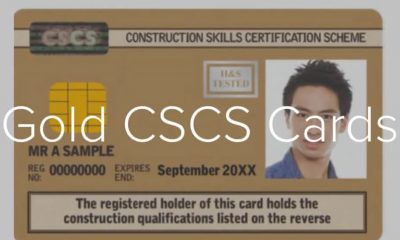
 Business3 years ago
Business3 years agoHow to Get a Gold Supervisory CSCS Card
-
Jobs2 years ago
PASMA labourer in Cirencester
-

 Tech3 years ago
Tech3 years agoIt Won’t Make You the $6 Million Man, But Hilti’s EXO-10 May Save Your Arms, Back
-
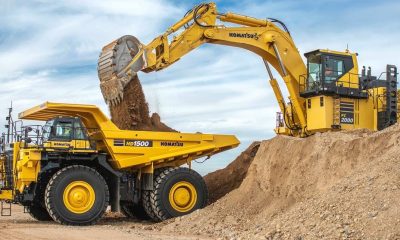
 Tech2 years ago
Tech2 years agoKomatsu launches new HD1500-8E0 rigid-frame dump truck


